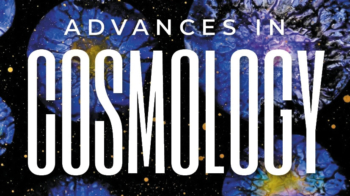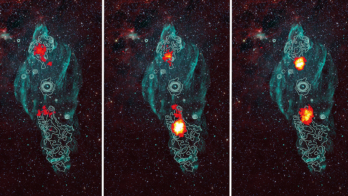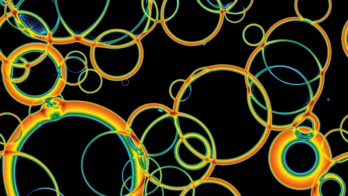Edited by Emma Sanders
Infrared reveals early universe
Observations using the Infrared Space Observatory (ISO) show that the first galaxies to form were far brighter than astronomers thought. The results were presented at a meeting in Paris.
Infrared telescopes reach parts of the sky other telescopes can’t see. Large dusty clouds absorb the radiation emitted by the stars they hide. The heated dust glows in the infrared,
revealing what is behind.
ISO has surveyed the faintest and furthest infrared objects,
revealing a new population of luminous galaxies. “Two to three times more stars are being formed than the rate inferred originally from optical surveys,
” said Michael Rowan-Robinson of Imperial College,
London.
Results are confirmed by the detection of the first-ever infrared bright gravitational arcs. These are images of distant galaxies magnified by up to 10 times by gravitational lensing,
allowing astronomers to see objects that would otherwise be too faint and too small. All the galaxies detected this way have much higher rates of star formation than predicted.
Greenwich’s time has come
Britain’s Royal Greenwich Observatory (RGO) has closed due to funding cuts. Founded in 1675,
it was home to the first Astronomer Royal,
John Flamsteed,
and was the country’s oldest scientific institution. The original observatory marked the zero degree meridian line.
Most of the RGO’s research was devoted to providing fundamental astrometric measures and almanacs for use by navigators and surveyors. In the 20th century the RGO’s activities broadened to include research on stellar structure and evolution,
galaxy dynamics,
active galactic nuclei and the large-scale structure of the universe,
as well as being home to a technology group devoted to telescope and instrument design. In the 1950s the observatory was moved out of London,
and from 1990 was located in Cambridge,
near to the University’s Institute of Astronomy.
Some of the RGO’s work will be continued by the Astronomy Technology Centre in Edinburgh.





